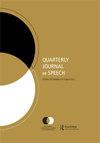“白人之路穿越黑人之家”:大都市的非殖民化组织
IF 1.3
2区 文学
Q2 COMMUNICATION
引用次数: 0
摘要
本文章由计算机程序翻译,如有差异,请以英文原文为准。
“White man's road through Black man's home”: decolonial organizing in the metropole
ABSTRACT Between 1965 and 1973, a coalition of local Washington, D.C., activists, organized as the Emergency Committee on the Transportation Crisis (ECTC), prevented construction of two freeways that would have destroyed neighborhoods and reshaped local communities. This essay reads their rhetorical practices as an example of decolonial delinking. To do so, I first re-tell the story of Washington, D.C., as an ongoing project of coloniality characterized by three dominant colonial habits: fostering division between local residents, articulating technocratic reasoning, and denying a local sense of place. Then I show activists overcoming those colonial logics by (1) building a multi-racial, cross-class coalition that modeled self-governance; (2) reclaiming the city as an organic being; and (3) engaging in rhetorical placemaking to imagine D.C. as home. This example of the ECTC orients our attention to de/coloniality as layered, ongoing processes, as well as the way that coloniality has facilitated our democratic imaginary symbolized by the nation's capital.
求助全文
通过发布文献求助,成功后即可免费获取论文全文。
去求助
来源期刊

Quarterly Journal of Speech
COMMUNICATION-
CiteScore
1.80
自引率
36.40%
发文量
39
期刊介绍:
The Quarterly Journal of Speech (QJS) publishes articles and book reviews of interest to those who take a rhetorical perspective on the texts, discourses, and cultural practices by which public beliefs and identities are constituted, empowered, and enacted. Rhetorical scholarship now cuts across many different intellectual, disciplinary, and political vectors, and QJS seeks to honor and address the interanimating effects of such differences. No single project, whether modern or postmodern in its orientation, or local, national, or global in its scope, can suffice as the sole locus of rhetorical practice, knowledge and understanding.
 求助内容:
求助内容: 应助结果提醒方式:
应助结果提醒方式:


